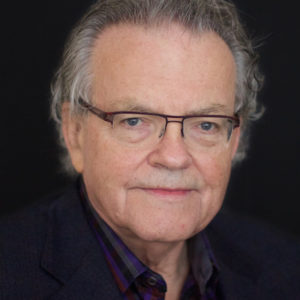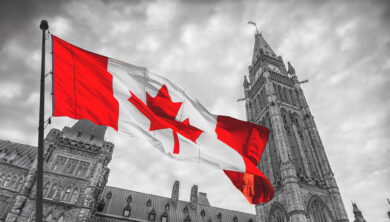
Connecting Canada
Investing in a Faster and Fairer Digital InfrastructureThree decades into the World Wide Web, the pandemic precipitated a sudden spike in our reliance on digital networks. Public services such as health care and education shifted heavily online, as did most office work, and a good deal of commerce and social relations. These trends were well established before the pandemic, but the adoption of a new normal was compressed from years to weeks.
There is no question about the importance of this digital transformation as we play catch up with the pandemic realities and rebuild our economy. Because of our large geographic mass and equally large economic and social ambitions, Canada more than most countries has always relied heavily on transportation and communications to open the next round of opportunities. Today, a modern and competitive digital infrastructure is the table stakes that enables our full participation in the digital age and the global economy of tomorrow.
Project Overview
Public Policy Forum launched a results-oriented process on the future of Canada’s digital infrastructure, building off our roundtable in February 2020. As far back as our October 2016 report Building the Future: Strategic Infrastructure for Long-Term Growth in Canada, PPF has been concerned that Canada broaden its interpretation of infrastructure into the digital realm increasingly influencing future opportunity and prosperity. These concerns have only been amplified through our pandemic project, Rebuild Canada.
Panelists
Denise Williams

Denise Williams is Chief Executive Officer of the First Nations Technology Council. At the intersection of Indigenous sovereignty, technological advancement and a rapidly expanding technology and innovation economy, Denise has the privilege of working with Indigenous peoples, governments, academics, technology futurists and social change makers to map an ecosystem that will result in fair and equitable access to the tools and education required to lead digital transformation in the 21st century. Denise leads a theory of change that aims to ensure Indigenous peoples are leading in Canada’s technology and innovation sector and in building new connected economies.
Nathalie De Marcellis-Warin

Nathalie de Marcellis-Warin is President and CEO of the Interuniversity Research Center for Organization Analysis (CIRANO). She is a full professor in the Department of Mathematics and Industrial Engineering at Polytechnique Montréal and a Visiting Scientist at the Harvard T. Chan School of Public Health. She has published numerous scientific articles, several books and more than 40 reports for the government and other organizations. In addition, she is a member of the Commission de l’éthique en science et en technologie (CEST) du Québec and a member of the Board of Directors of the Fonds de recherche du Québec- Nature et Technologies (FQRNT).
Peter Nicholson

Peter has served in numerous posts in government, business, science and higher education. His varied public service career included positions as head of policy in the Office of the Prime Minister, and Special Advisor to the Secretary-General of the Organization for Economic Cooperation and Development (OECD) in Paris. He retired in 2010 as the founding president of the Council of Canadian Academies, an organization created to support expert panels that assess the science relevant to issues of public importance. Peter Nicholson is a member of both the Order of Canada and the Order of Nova Scotia.
Sean Speer

Sean Speer is the PPF Scotiabank Fellow in Strategic Competitiveness at the Public Policy Forum. His latest research explores the perceptions and realities shaping the Urban-Rural divide in Canada, and the implications for policymakers and leaders. He is also an assistant professor at the University of Toronto’s Munk School of Global Affairs and Public Policy. He previously served as a senior economic adviser to former Prime Minister Stephen Harper.
Thank you to our partners








